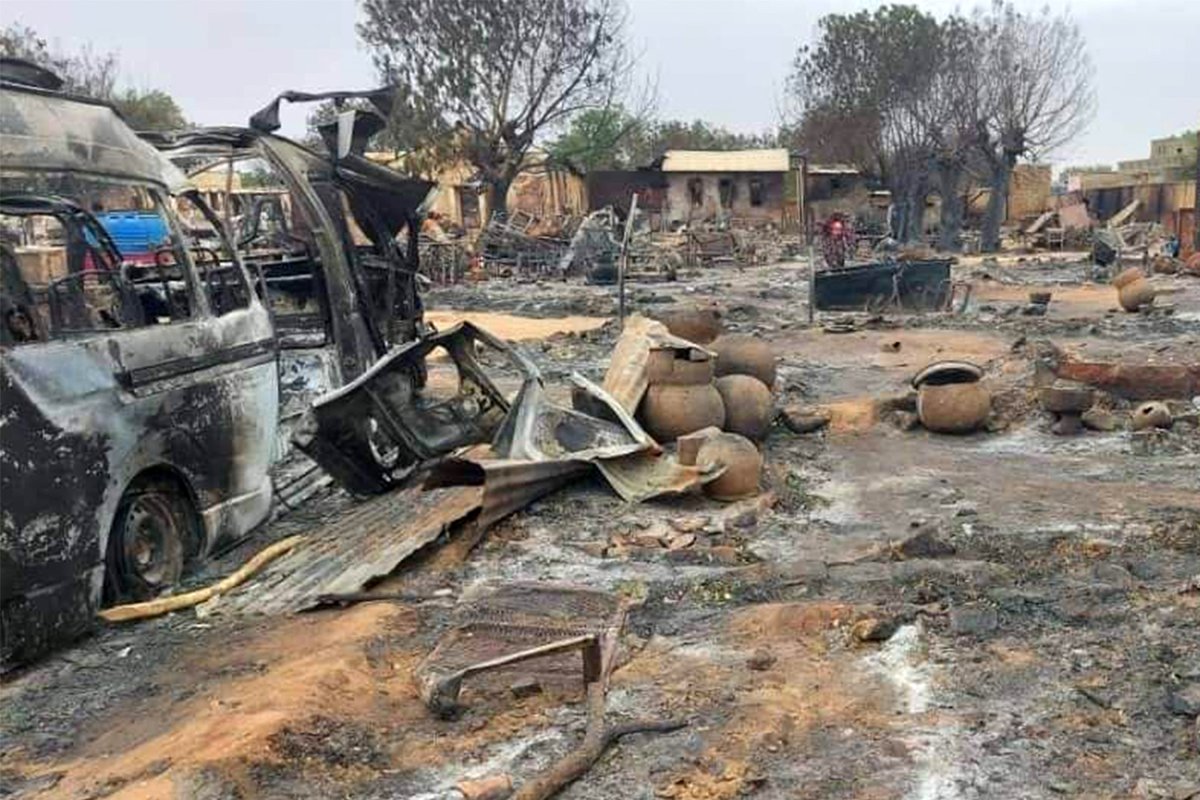The year 2023 witnessed the eruption of wars and flaring up of deadly conflicts across the world. The conflict in Sudan (which plunged into a largescale war in April 2023) has received poor coverage by Western media, often viewed as less important than the wars in Gaza and Ukraine, which broke out in October 2023, and February 2022, respectively.
There is an ambivalence about Sudan in the West, for rarely did we see stories in the press last year on how the war in Sudan poses a number of challenges to other African countries, including neighboring Egypt, as well as to the instable states in the Sahel and East and North Africa. Likewise, there was little coverage of the eight-party peace summit which Egypt held in July to debate the negative consequences of Sudan's war on its neighboring countries.
Since the ouster of longtime autocrat Omar Hassan al-Bashir in a popular uprising in April 2019, Sudan has been mired in dire economic problems, street protests, and fresh violence in the beleaguered western region of Darfur. On April 15, 2023, and before a deal on resuming the transition to democracy could be signed, fighting erupted between the Sudanese Arms Forces (SAF), led by Sudan's army chief General Abdel Fattah Burhan, and the paramilitary group Rapid Support Forces (RSF), which is commanded by General Mohamed Hamdan Dagalo. Fighting has subsequently intensified in the country between Burhan—who assumed full power in a coup in October 2021—and Dagalo.
With the Western media consumed by other conflicts, such as the wars in Gaza and Ukraine, the Sudanese continue to be caught in a conflict not of their own making, with hunger growing more rampant in the African country. In comparing coverage of the three wars by the West, any media scholar should notice that there is a media defect in how the Sudan war is reported on. Sudanese refugees are often framed as frail, naïve, and backward people. The Western media views Sudanese lives—and African lives as a whole—as less deserving of sympathy than Ukrainian, Israeli, or Palestinian lives.

With the United Nations running out of funds, Sudan faces "catastrophe," with aid workers calling it the "forgotten war." There are 25 million people in Sudan who need aid. To the dismay of many Africans, the U.N. Security Council voted unanimously early in December to terminate the mandate of the U.N. Integrated Transitional Assistance Mission in Sudan (UNITAMS), which was established in Khartoum in 2020, to support the Sudanese during the political transition that followed the ouster of Bashir. The termination carries with it devastating consequences for Sudanese civilians, with fear that rising violence would drag the country further toward disaster in 2024. The forced withdrawal of UNITAMS is also a new setback for the U.N., which is facing a certain amount of hostility, mostly in Africa, about the efficiency of its political and security missions. In late June, the Security Council ended its decade-long peacekeeping mission in Mali.
The humanitarian and security situation in Sudan is highly volatile. Unless a world commitment is made to end the civil war, the country will fully disintegrate. There is also fear of violence spilling over from Sudan into neighboring African countries. In August, a coup took place in the West African state of Gabon. It was sub-Saharan Africa's seventh coup since 2020, and it came in a little over a month after the Niger coup in July. The other four countries where coups erupted were Mali (August 2020), Chad (April 2021), Guinea (September 2021), and Burkina Faso (January and October 2022).
Three reasons are behind the eruption of this coup pandemic in sub-Saharan Africa, and they include internal problems, opportunism (as exhibited in flawed elections and corruption), and a colonial exploitation, which has been hindering Africa for generations. Most of these military takeovers occurred in former French colonies in the west and central Africa regions, causing some to characterize it as the "coup belt" region, which runs across the continent from Guinea to Sudan. Protesters in those former French colonies often call for the shutting down of French military bases in their countries.
Poor Western media coverage of the Sudanese war has weakened the chances of launching peace initiatives to end the SAF-RSF civil war, which has left more than 12,000 dead and forced 5 million people to flee to safer areas inside Sudan, or to neighboring countries such as Egypt, Chad, and Ethiopia. It is vital that Western media coverage of Sudan, and of Africa as a whole, expand beyond the issue of the "frightening flow" of Sudanese and African refugees into the West.
Mohamed El-Bendary, an independent researcher based in Egypt, taught journalism in the United States and New Zealand. He is the author of The "Ugly American" in the Arab Mind: Why Do Arabs Resent America?
The views expressed in this article are the writer's own.
Uncommon Knowledge
Newsweek is committed to challenging conventional wisdom and finding connections in the search for common ground.
Newsweek is committed to challenging conventional wisdom and finding connections in the search for common ground.
About the writer
To read how Newsweek uses AI as a newsroom tool, Click here.






